praise for whatever you say I am
The Life and Times of Eminem
Bozza avoids a gushy, insiders love-fest. Instead, he takes advantage of his unique perspective to paint an informative portrait of a conflicted figure whose influence on American culture goes far beyond his own popularity.
USA Today
It is time for a thoughtful look at what Eminems appeal really signifies, and Bozza does a creditable job.
New York Times
A provocative portrait of a young man as reviled as hes revered with telling observations concerning what it says about the rest of us when such a divisive figure becomes a pop culture phenomenon.
Boston Globe
Bozza details what is perhaps the most intriguing aspect of the Eminem story: the rappers determination to keep a grip on the world as the world got ungripped around him.
Detroit Free Press
Bozza deserves props for sticking to the critical high road. More that anything else, he makes a compelling case that Eminem is the perfect voice of the post-Sept. 11 generation: jaded but vulnerable, damaged and complicated, desperate to be understood.
Cleveland Plain Dealer
Bozza makes the case that Eminem is worth thinkingand writingabout.
Boston Herald
An engaging book about a new and highly buzzing cultural manifestation.
The New York Review of Books
Bozzas unprecedented access to Mathers then and now has given rise to one of the only fully honest accounts of the now brilliant star.
Publishers Weekly
Brilliantly, Bozza tells the tale of an elusive genius in Whatever You Say I Am, and every white-hot truth is here. This is more that the definitive portrait of Eminems emergence and meaning; its a manual for loving music and understanding how passion is born.
Cameron Crowe, writer-director
While most scribes, with eyes closed, have long been pushing pens in hot pursuit of international rap phenom Eminem, Anthony Bozza has wisely devoted his time to exploring the trials and tribulations of Detroit native Marshall Mathers III. And he who understands Mathers understands the fabric of American societybeautiful stitches, stains, rips, and all.
Sacha Jenkins, former Vibe magazine music editor, writer-at-large for Spin magazine, and coauthor of Ego Trips Big Book of Racism! and Ego Trips Book of Rap Lists
Anthony Bozza was granted an access to Eminem that no journalist is likely to see again soonand so Whatever You Say I Am offers the most intimate glimpses yet of the most towering, complicated figure of our culture.
Alan Light, former editor-in-chief of Vibe and Spin magazines, and editor of The Vibe History of Hip-Hop.
To Marshall Bruce Mathers III.
For his life as hes lived it and as hes told it,
and everything that hes changed on the way.
contents
introduction
id like to welcome yall to the eminem show
conclusion
watch me, cause you thinkin you got me in the hot seat from a sinner to a saint
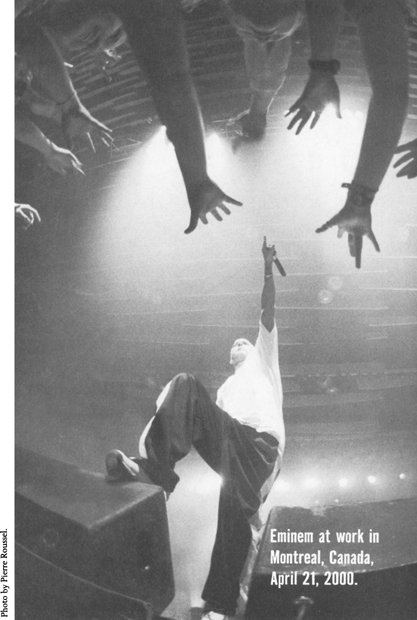
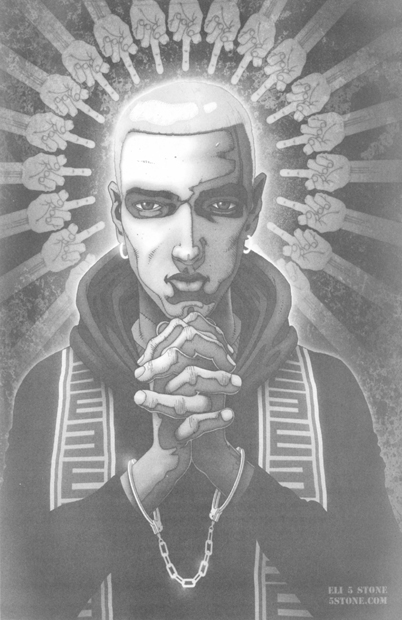
acknowledgments
Without the aid, encouragement, conversation, work, and inspiration of these people, this book would not be. Thanks to my editor, Carrie Thornton, for the Jedi mind tricks she employed to understand me and to keep me on track and as on time as she could. To Trisha Howell and Patty Bozza (no relation) for their calm and patience with me. Jim Fitzgerald for his sage edit adages and everyone at the Carol Mann Agency for their assistance and representation. My circle of friends, peers and sounding boards, were essential to my process, particularly Joseph Patel, Tanya Selvaratnam, Jon Caramanica, and Matt Diehlthank you many times for your insight and empathy. I thank Lindsay Goldenberg for her tireless support, research assistance, observations, patience, love, and for believing in me. To my mother and stepfather for the pep talks and advice, respectively, and for collectively keeping me in touch with the tastes of the aged. Unbeknownst to my editor, my father and stepmother provided several necessary work breaks; I thank you, she doesnt. Thanks to the J. Baker family, nuclear and extended, of Minneapolis, for their prayers and votes of confidence. They are an invaluable asset to that fine city. I would like to thank Eli 5Stone for transforming my stream-of-consciousness ramblings on the polarity of good and evil, shadow and light, and Eminem and Marshall Mathers into the arresting (no pun intended) illustration on the opposite page. I also thank Andr from OutKast for music as intelligent as his opinions, Dave Marsh for being as cool as Id hoped hed be, and everyone interviewed in these pages, artist, critic, or other. I am indebted to Eminem for sharing his passion, conviction, and vision and to he and Paul Rosenberg for the preference theyve shown me over the years, a proximity without which this book would not be possible. Thank you, too, to Jann Wenner for founding Rolling Stone and to former managing editor Bob Love for promoting metwo undeniable stepping-stones in the creation of this work.
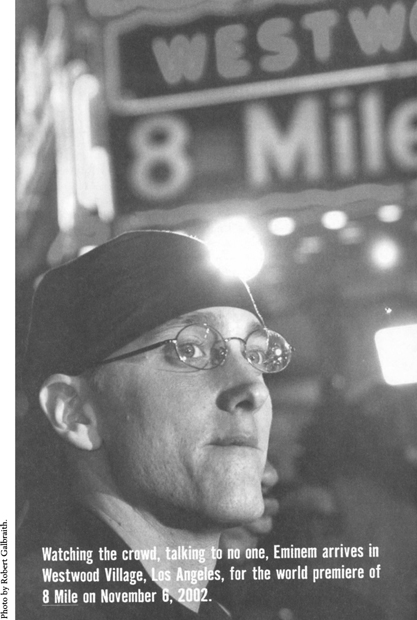
Introduction
id like to welcome yall to the eminem show
 I saw 8 Mile the day it came out on November 11, 2002, among a crowd of my fellow New Yorkers, all of us dropping our ten bucks into a pot that by Monday added up to nearly $55 million, the second biggest opening weekend for an R-rated film in history (the title-holder in that category, for now, remains Hannibal, a film that played in more theaters than 8 mile). The audience that evening was a true cross section of New York City: black, white, Hispanic, Asian, young, and middle-aged. Some were heavy into hip-hop; some were hooked on pop and MTV; some were drawn by the media buzz; and otherstwo Goths, a group of metal heads, and a gray-haired couple with a whiff of academia to themjust looked curious. There was a tangible anticipation in the air. I felt as if I were not on line to see a Hollywood feature, but among the cultish generation-spanning devotees of Kiss, Neil Diamond, Tom Jones, or James Brown, waiting at a convention or outside of a record store, hoping to get an autograph.
I saw 8 Mile the day it came out on November 11, 2002, among a crowd of my fellow New Yorkers, all of us dropping our ten bucks into a pot that by Monday added up to nearly $55 million, the second biggest opening weekend for an R-rated film in history (the title-holder in that category, for now, remains Hannibal, a film that played in more theaters than 8 mile). The audience that evening was a true cross section of New York City: black, white, Hispanic, Asian, young, and middle-aged. Some were heavy into hip-hop; some were hooked on pop and MTV; some were drawn by the media buzz; and otherstwo Goths, a group of metal heads, and a gray-haired couple with a whiff of academia to themjust looked curious. There was a tangible anticipation in the air. I felt as if I were not on line to see a Hollywood feature, but among the cultish generation-spanning devotees of Kiss, Neil Diamond, Tom Jones, or James Brown, waiting at a convention or outside of a record store, hoping to get an autograph.
I like to show up early for a film, but even arriving an hour ahead of schedule I was far back in the line. Whether it was to get a jump on Mondays water-cooler talk, to decide if the controversial rapper deserved the Oscar nod the press had speculated, to see what hipsters called the best hip-hop movie since Wild Style, or to find the key that would decipher fact from fiction in the canon of Marshall Mathers, we had all lined up to see what wed see. I had my own ideas, too. I saw the film as an evolution, not so much for Eminem as it was for the cult of celebrity. To me, the film wasnt an indication that he was trying to launch a J. Lolike all-media career (music, film, plain old fame), contrary to a claim Id hear from people who really hadnt looked that closely, and I was sure that, no matter how great Eminem was in


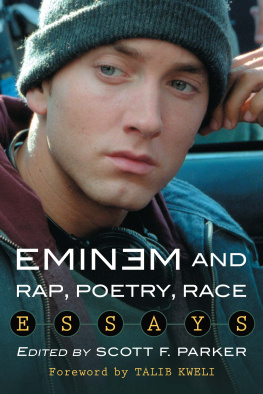

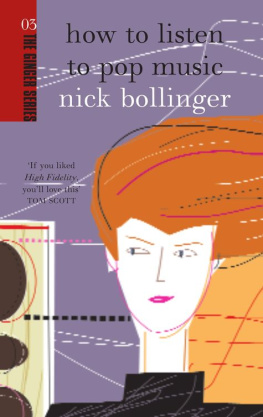
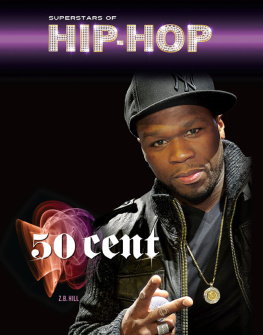
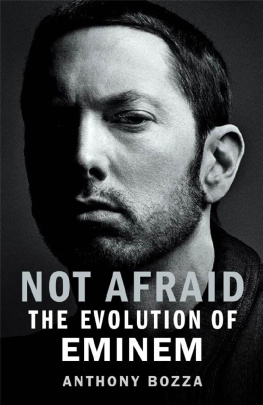
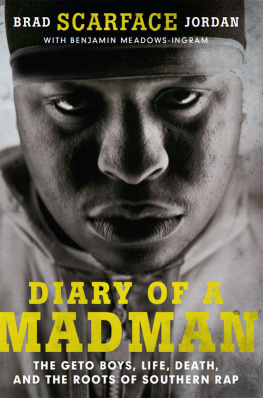
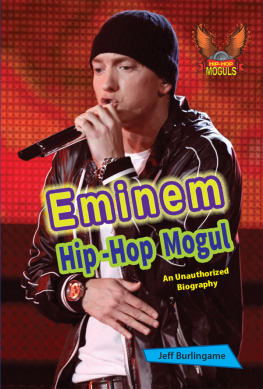
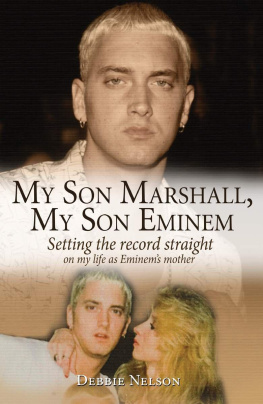
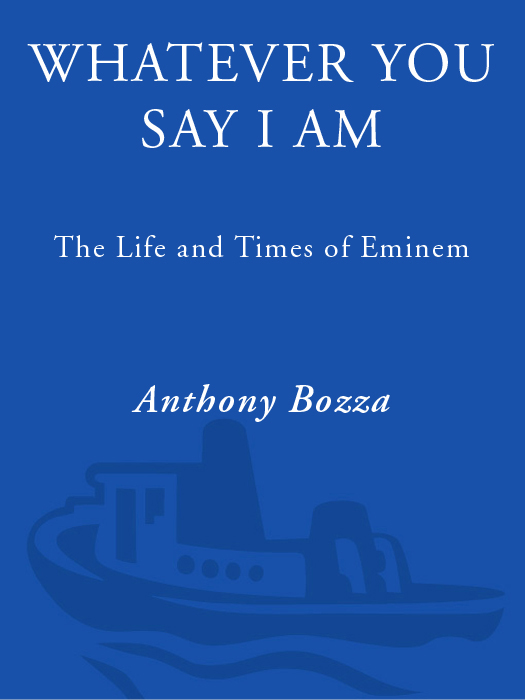
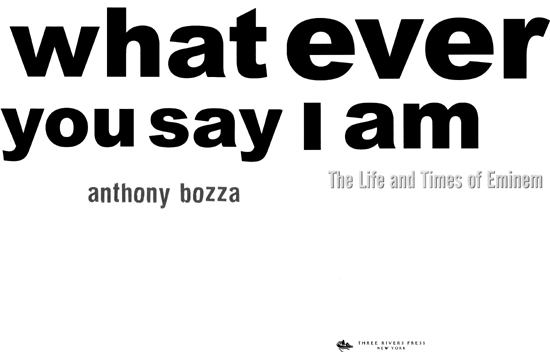



 I saw 8 Mile the day it came out on November 11, 2002, among a crowd of my fellow New Yorkers, all of us dropping our ten bucks into a pot that by Monday added up to nearly $55 million, the second biggest opening weekend for an R-rated film in history (the title-holder in that category, for now, remains Hannibal, a film that played in more theaters than 8 mile). The audience that evening was a true cross section of New York City: black, white, Hispanic, Asian, young, and middle-aged. Some were heavy into hip-hop; some were hooked on pop and MTV; some were drawn by the media buzz; and otherstwo Goths, a group of metal heads, and a gray-haired couple with a whiff of academia to themjust looked curious. There was a tangible anticipation in the air. I felt as if I were not on line to see a Hollywood feature, but among the cultish generation-spanning devotees of Kiss, Neil Diamond, Tom Jones, or James Brown, waiting at a convention or outside of a record store, hoping to get an autograph.
I saw 8 Mile the day it came out on November 11, 2002, among a crowd of my fellow New Yorkers, all of us dropping our ten bucks into a pot that by Monday added up to nearly $55 million, the second biggest opening weekend for an R-rated film in history (the title-holder in that category, for now, remains Hannibal, a film that played in more theaters than 8 mile). The audience that evening was a true cross section of New York City: black, white, Hispanic, Asian, young, and middle-aged. Some were heavy into hip-hop; some were hooked on pop and MTV; some were drawn by the media buzz; and otherstwo Goths, a group of metal heads, and a gray-haired couple with a whiff of academia to themjust looked curious. There was a tangible anticipation in the air. I felt as if I were not on line to see a Hollywood feature, but among the cultish generation-spanning devotees of Kiss, Neil Diamond, Tom Jones, or James Brown, waiting at a convention or outside of a record store, hoping to get an autograph.